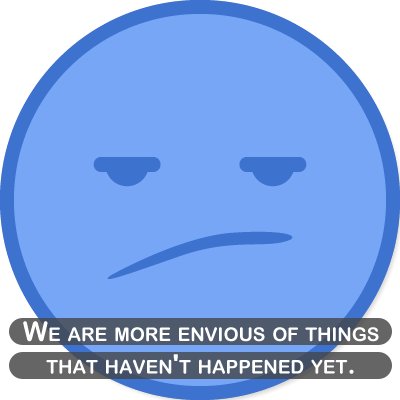Timing and the experiencing of envy
We are more envious of things that haven't happened yet.

Authors: Alexander C. Kristal, Ed O’Brien, Eugene M. Caruso.
Main titles
- We are more envious of someone's covetable experience before it happens, rather than afterwards. This is consistent with getting more worked up about future events than past ones; for example the anticipation of an excursion is often more exciting than remembering it after it has happened.
“Enviable events lose some power over us once those events are in our past. This occurs even when people are left to their own devices — in our studies, we didn’t instruct participants to engage in any particular distraction task or coping strategy, yet they still felt better as long as some time passed.” -Ed O’Brien, University of Chicago Booth School of Business.
- Envy can produce positive outcomes such as inspiration and negative outcomes such as self-dislike.
- According to the study, people felt more malicious envy(frustration & dislike) before the event and less afterwards.
- In contrast, people felt more benign envy(inspiration & motivation) after the event had passed.
“There may be subtle power in the timing of information sharing,” the researchers add. “A status update of ‘All packed for Maui!’ may have more influence than ‘Back home from Maui!’”

 vneo
vneo 











